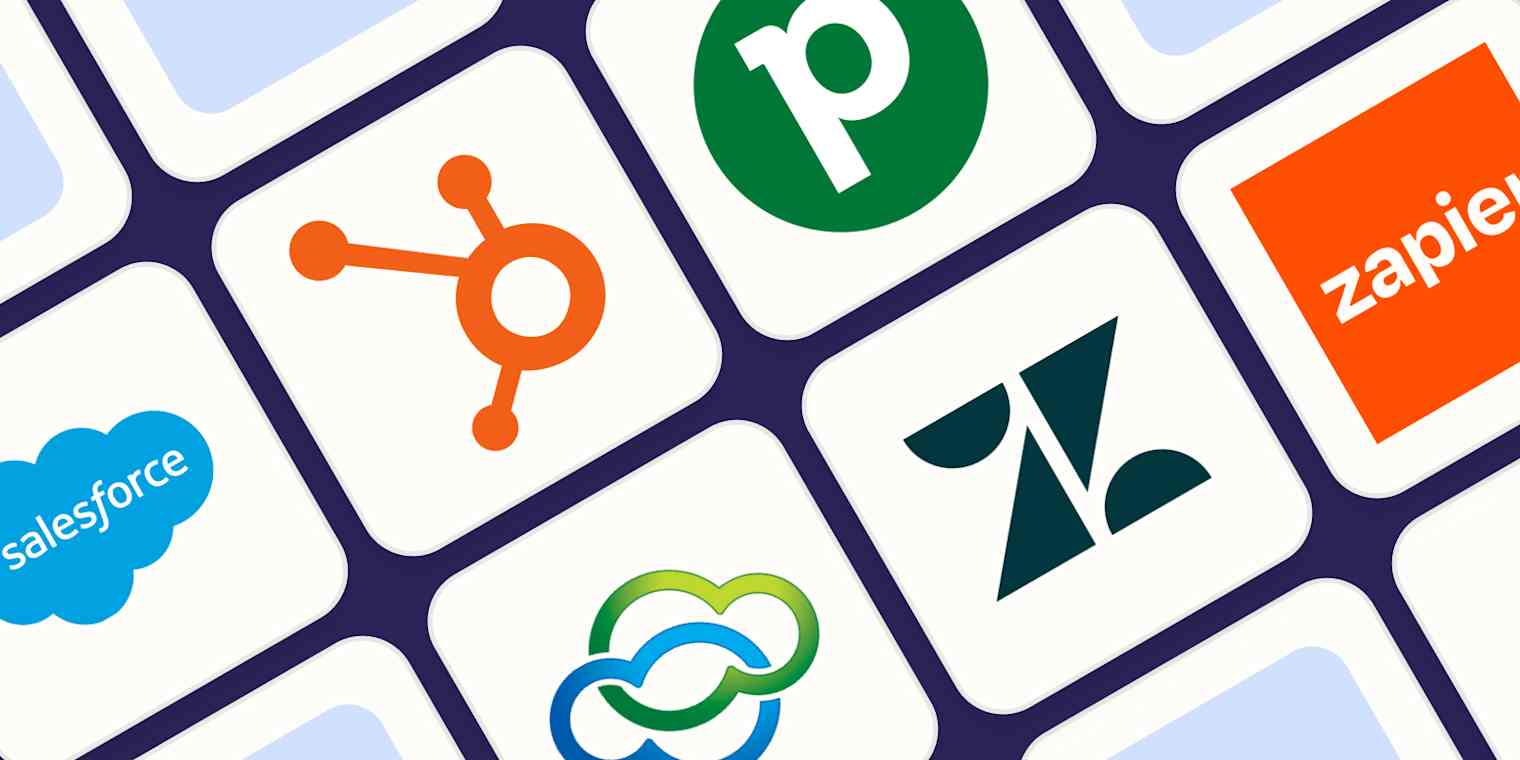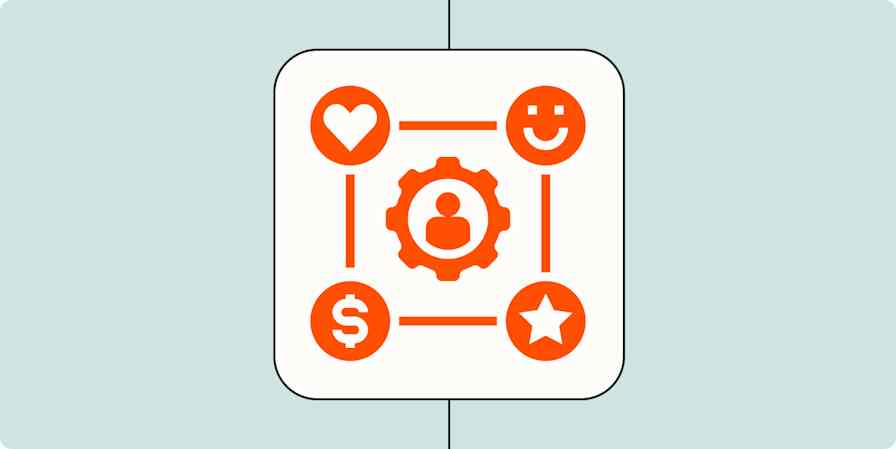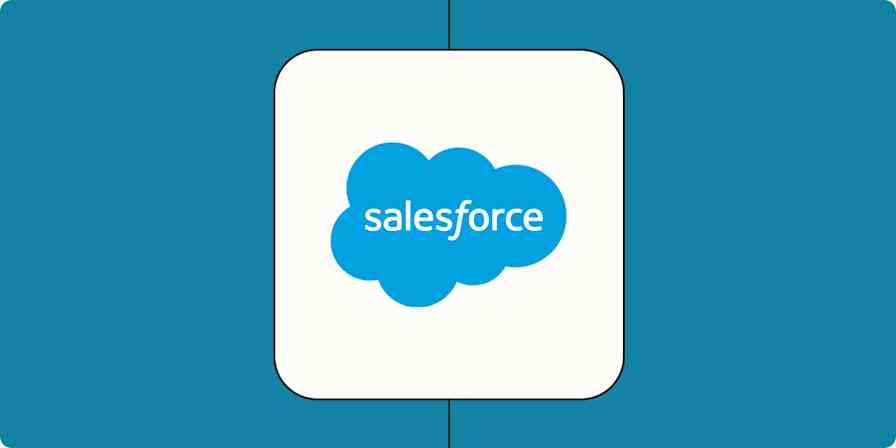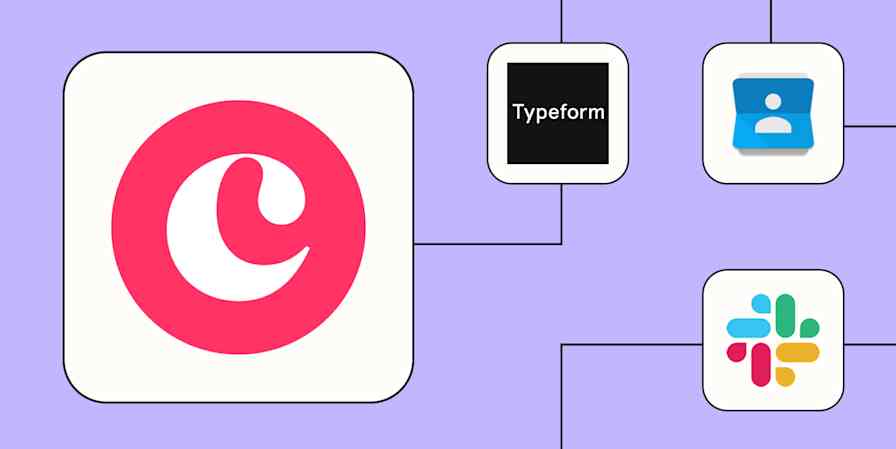Revisamos de forma independente todos os aplicativos que recomendamos em nossas listas de melhores aplicativos. Se você clicar em alguns dos links desta página, poderemos ganhar uma comissão. Saber mais,
My very first CRM was a DOS-based system I was forced to use in 2009. Which, just to be clear, was well after the invention of the iPhone, streaming services, and functioning graphical user interfaces. It didn't integrate with anything, it didn't suggest or automate a single thing, and if it had any "intelligence," it was the kind that treated the tab key as a threat to its authority.
I've seen the CRM evolution—from command lines and black screens to the sleek, AI-infused platforms of today that promise to predict your sales pipeline, manage your follow-ups, and automate complex workflows. If you're looking to upgrade your customer relationship management strategy today, AI is no longer optional.
I've spent the past few weeks poking, prodding, and occasionally screaming into dozens of AI-driven CRMs, and I've put together a shortlist for you to try out. Here's the best AI CRM software.
The best AI CRM tools
Salesforce Sales Cloud for enterprise-level customization
HubSpot CRM for aligning marketing and sales
Pipedrive for visual pipeline management
Vtiger for small to mid-sized teams
Zendesk for customer support
Zapier para orquestração de IA
What is an AI-powered CRM?
An AI-powered CRM goes beyond traditional customer relationship management by using artificial intelligence to automate tasks, analyze data, and provide actionable insights. While your grandfather's CRM stores customer information and tracks interactions, an AI CRM actively helps you make better decisions about how to engage with customers.
Here's what makes CRMs with AI special, in that "this thing is going to replace me, isn't it?" kind of way:
Automation of routine tasks: AI can handle data entry and follow-up reminders and even draft emails or responses based on context.
Smart data analysis: Instead of your team staring blankly at spreadsheets, trying to divine meaning like ancient mystics reading goat entrails, AI CRMs analyze patterns across thousands of customer interactions to spot trends humans might miss.
Predictive capabilities: The AI can forecast which deals are likely to close, identify at-risk customers, and suggest optimal times to reach out.
Personalization at scale: Remember when you wrote "Hi [First Name]" and called it personalized? That's cute. AI CRMs tailor messages to individual customers without requiring manual customization for each interaction.
Continuous learning: The more data it processes, the better it gets at helping you look good. Which is really the goal, right?
What makes the best AI CRM?
Como avaliamos e testamos aplicativos
Nossas listas dos melhores aplicativos são escritas por pessoas que passaram boa parte de suas carreiras usando, testando e escrevendo sobre software. A menos que seja explicitamente declarado, passamos dezenas de horas pesquisando e testando aplicativos, usando cada aplicativo da forma como deve ser utilizado e avaliando-os de acordo com os critérios que definimos para a categoria. Nunca recebemos dinheiro de nenhum aplicativo para escrever sobre eles em nossos artigos ou para links para qualquer site — valorizamos a confiança que os leitores depositam em nós para oferecermos avaliações autênticas das categorias e aplicativos que analisamos. Para mais informações sobre nosso processo, leia o resumo completo de como selecionamos aplicativos para destaque no blog do Zapier.
I started with a list of over 20 popular CRM platforms that claim AI capabilities. From there, I focused on four functions: AI customization, unified customer view, predictive analytics, and ease of adoption. I also considered factors like pricing, integration capabilities, and customer support.
To gather comprehensive data, I tested each platform myself, spoke with current users, analyzed customer reviews, and constructed an elaborate Google Sheet that would make even the most dedicated project manager weep with joy. The goal was to identify tools that not only have impressive AI features on paper but can deliver results in real-world business settings.
After wading through enough marketing BS to fertilize the entire state of Nebraska, I narrowed down the field based on four key criteria:
AI customization: The best AI CRMs let you tailor the artificial intelligence to your specific business needs. You should be able to train the system with your data, customize workflows, and adjust how the AI makes predictions.
Unified customer view: Contrary to popular belief, AI isn't magic—it's basically a glorified calculator with access to lots of customer data. I only considered CRMs that pull data from every possible corner—sales, marketing, support, maybe even your dreams—to give AI a comprehensive, 360-degree view of each customer. Only then can it pretend to "know" them well enough to recommend anything besides a restraining order.
Predictive analytics: Predictive analytics uses historical data to forecast future outcomes. When done right, it can help you make smarter decisions. When done wrong, it's just an expensive way to be confidently incorrect.
Easy adoption: Even the most advanced AI is useless if your team won't use it. I prioritized systems that balance sophisticated AI capabilities with user-friendly interfaces.
With these criteria in mind, let's explore the best AI CRM tools, each excelling in different areas to meet various business needs.
The best CRMs with AI at a glance
| Ideal para | Recursos de destaque | Preços |
|---|---|---|---|
Enterprise-level customization | Unparalleled customization and AI capabilities | A partir de US$ 25/usuário/mês | |
Aligning marketing and sales | Intuitive user experience and smoothly integrated AI | Plano gratuito disponível; planos pagos a partir de $9/usuário/mês | |
Visual pipeline management | Clear drag-and-drop pipeline visualization | A partir de $14/assento/mês | |
Small to mid-sized teams | Customizable AI at an affordable price | A partir de US$ 12/usuário/mês | |
Atendimento ao cliente | Combines powerful AI with an intuitive agent experience | A partir de US$ 55/usuário/mês | |
Orquestração de IA | Integrates 8,000+ apps with built-in AI | Free plan available; from $19.99/month |
Best AI CRM for enterprise-level customization
Salesforce Sales Cloud (Web, iOS, Android)

Salesforce Sales Cloud pros:
Industry-leading AI capabilities
Amplas opções de personalização
Huge ecosystem of apps and support
Salesforce Sales Cloud cons:
Complex to set up and configure
Heavy reliance on high-quality data
Salesforce has been around since the dawn of time (or 1999, same diff), and it's still the heavyweight in the CRM space. Its Einstein AI (named after the famous physicist, not the bagel company, though both are equally valid) offers a mix of pre-built features and deep customization. That balance makes it a popular choice for massive companies that need a massive platform to manage their massive customer databases.
Einstein handles predictive lead scoring, deal prioritization, and pipeline forecasts right out of the box. The generative AI features are strong, too. It can draft personalized emails, summarize calls with key takeaways (even catching the customer's sentiment), and suggest next steps tailored to specific deals.
I tested Einstein's Opportunity Insights feature extensively. It flagged deals at risk with surprising accuracy, often identifying issues I hadn't noticed in my test scenarios. The AI considers factors like communication frequency, stakeholder engagement, and historical deal patterns to calculate risk scores. Luke Chapman, senior SEO strategist at BigChange, told me that Opportunity Insights has cut his team's sales cycle time by about 10%.
Salesforce allows significant AI customization through tools like the no-code Einstein Prediction Builder to create your own AI models and Einstein Bots to design custom chatbots. And if you have developers, you can use Salesforce's APIs to extend or embed AI. The platform's flexibility means businesses can tailor models (for example, predicting a custom KPI). You can also bring in your own large language models and plug them into Salesforce's LLM Open Connector.
That said, tapping into this customization often requires Salesforce consultants or data scientists, as it's complex. Out of the box, many Einstein features work automatically, but full customization (like adding new data signals or building unique predictions) may involve additional licensing or technical setup.
Salesforce is the kind of platform that has inspired an entire ecosystem of consultants, certification programs, and support groups for traumatized administrators (probably). But if you're an enterprise with complex needs and multiple departments, Salesforce is the gold standard for a reason. It can handle anything you throw at it, scale infinitely, and the AI capabilities are genuinely impressive when properly implemented.
To do even more with it, connect Salesforce to Zapier and start orchestrating AI across your entire sales workflow. Instead of just automating simple tasks, you can layer AI into your processes to make Salesforce smarter and more proactive, turning Salesforce into a central hub where AI, automation, and your sales data work together in real time. Learn more about automating Salesforce, or try one of these pre-built templates.
Crie leads do Salesforce com novos envios do Gravity Forms
Adicionar novos leads do Facebook Lead Ads como leads no Salesforce
Salesforce Sales Cloud pricing: From $25/user/month (billed annually)
Best AI CRM for aligning marketing and sales
HubSpot CRM (Web, iOS, Android)
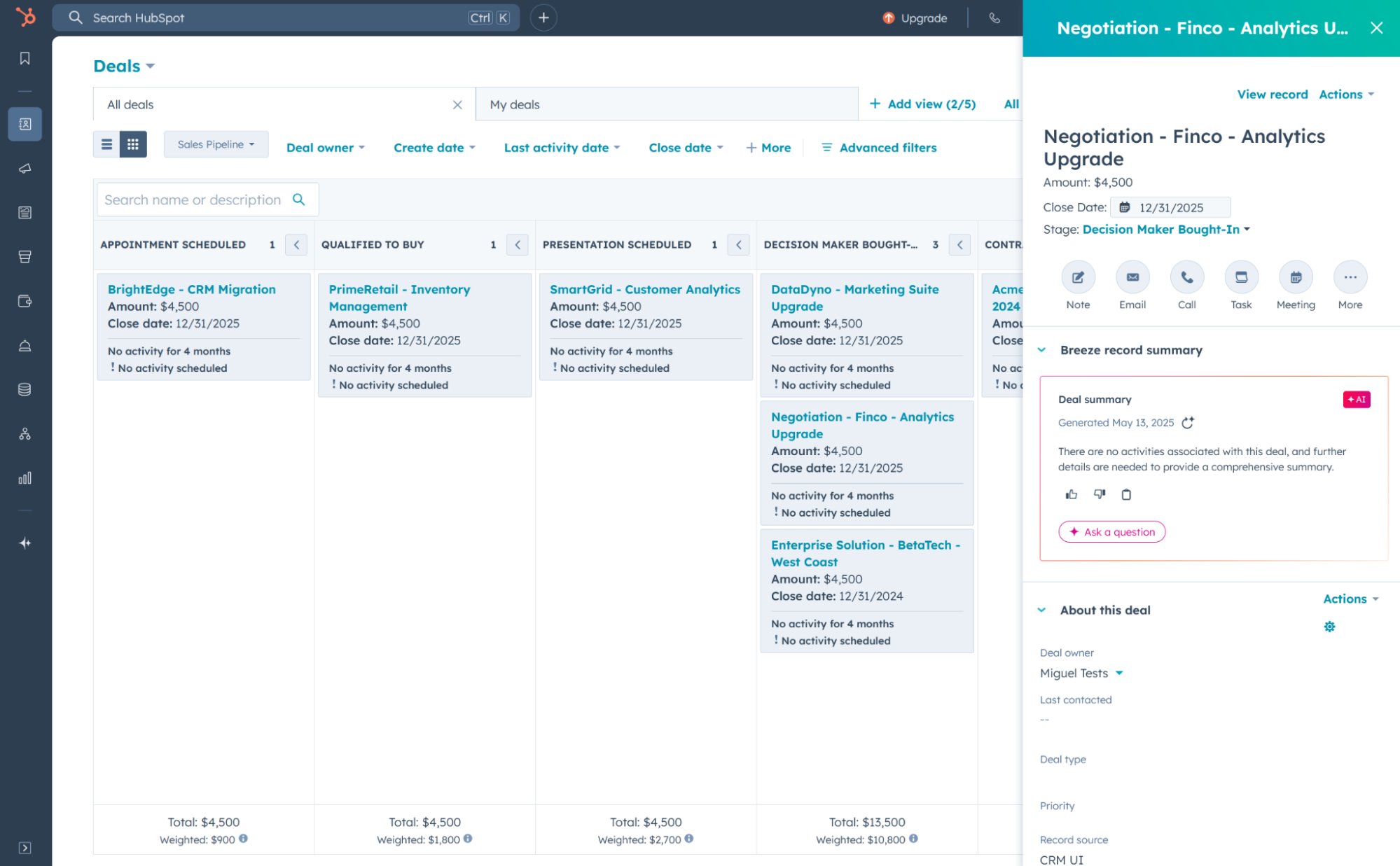
Pontos fortes do HubSpot CRM:
Intuitive user experience and smooth onboarding
Extensive integrations
Robust documentation and community
Pontos fracos do HubSpot CRM:
Confusing pricing structure
Limited AI customization
Generative AI outputs can feel generic
Once a humble marketing automation tool, HubSpot has morphed into a full-blown CRM powerhouse that gets your entire RevOps team working together on one approachable and surprisingly powerful platform.
The thing that makes HubSpot stand out is how gosh darn easy it is to use. Honestly, I haven't seen many other solutions that make advanced AI feel so accessible to everyday users. HubSpot's shiny, AI-enhanced toolkit (called Breeze AI) is smoothly integrated into the workflows you already use, making adoption significantly less painful than a CRM like Salesforce.
Breeze AI is really a collection of different tools:
Breeze Copilot: An in-app assistant that helps build workflows, summarize records, write content, and support outreach
Breeze agents: AI-powered specialists designed to automate workflows and extend team capabilities
Social Agent writes social posts in your tone
Content Agent helps with blog posts, landing pages, and more
Prospecting Agent researches and automates outreach
Customer Agent handles support questions using your knowledge base
What I love-slash-hate-slash-love-again about Breeze AI is how sneaky it is. It doesn't feel like some extra feature you have to go looking for. For instance, when you're putting together an email campaign, the AI is right there in the editor, ready to suggest a catchy subject line, clean up your copy, or even predict who's most likely to open it, all without feeling like a separate tool.
HubSpot allows configuration of its AI features—for example, you can tweak lead scoring models by specifying which behaviors or contact properties to weigh more heavily. But it doesn't offer fully custom AI model building to the end user. Also, many advanced AI functions (like conversation intelligence or advanced scoring) are available only on higher-tier plans.
You can connect HubSpot to all the other apps you use with Zapier's HubSpot integrations. For example, Zapier can instantly log new Google Ads leads into the platform, then alert your sales team in Slack, all without manual entry. Combine that with powerful built-in AI, and Zapier becomes the AI orchestration layer for all your workflows. Read more about how to automate HubSpot, or try one of these pre-made workflows.
Crie contatos no HubSpot para novos leads do Google Ads
Adicione novos contatos do HubSpot às listas de clientes do Google Ads
Adicione novos contatos do HubSpot às listas do Mailchimp
HubSpot CRM pricing: Free plan available; paid plans from $9/user/month
Está decidindo entre Salesforce e HubSpot? Leia nosso confronto: HubSpot x Salesforce.
Best AI CRM for visual pipeline management
Pipedrive (Web, iOS, Android)

Prós do Pipedrive:
Intuitive visual interface
Strong automation and analytics
AI features available on lowest-tier plan
Contras do Pipedrive:
AI is not as advanced as enterprise CRMs
Not ideal for complicated needs involving multiple departments
Pipedrive keeps things simple in the best way. It's a Kanban-based CRM that helps sales teams stay focused, and its AI features are built to support that, not distract from it.
Instead of layering in flashy features no one uses, Pipedrive's AI stays close to the sales process. The AI Sales Assistant analyzes your deals, contacts, and emails to predict win probabilities and suggest next steps based on your sales process.
The email writer helps you write outreach emails, proposals, and follow-ups using custom prompts. You pick the tone, length, and type of email, and the AI builds it, saving you from staring at the screen wondering how many exclamation points are too many when following up for the fifth time. The email summarizer condenses long email threads into brief summaries so you don't waste time digging for context.
The AI features don't take much effort to set up. You won't get deep customization of the underlying models, but you can design your own automated workflows and create multiple pipelines for different products or sales processes. The AI learns from these customizations, improving its predictions and recommendations over time.
While Pipedrive doesn't offer the same comprehensive unified view across marketing, sales, and service as some all-in-one CRMs, it excels at unifying sales-related data. Every interaction, email, call, and activity is tracked on a clear timeline, giving you a complete picture of the sales process.
The Pipedrive Marketplace offers integrations with over 500 apps. You can do even more by connecting Pipedrive with Zapier, allowing you to connect it to thousands of other apps to orchestrate AI across your entire sales process. For example, when a high-value deal is created in Pipedrive, Zapier can analyze the historical data, generate an executive-ready summary, and send it to Slack for leadership visibility, all while logging the deal in any other app in your sales tech stack. Here are some other examples to get you started, or you can learn more about how to automate Pipedrive.
Adicionar novos envios de formulário Unbounce ao Pipedrive como acordos
Crie acordos no Pipedrive para novos leads no Google Ads
Enviar conversões offline no Google Ads quando novos acordos corresponderem aos filtros no Pipedrive
Pipedrive pricing: From $14/seat/month
Best AI CRM for small to mid-sized teams
Vtiger (Web, iOS, Android)

Vtiger pros:
Suite of AI features for generative AI, predictive analytics, and AI agents
Tight integration with Microsoft Teams
Cost-effective alternative to pricier solutions
Pontos fracos do Vtiger:
Limited marketing-specific automation and AI
Dated interface and user experience
If you've never heard of Vtiger, you're not alone. In fact, I initially confused it with VTech and spent five incredulous minutes wondering why the folks who made my nephew's chirpy plastic laptop were now peddling customer relationship software. Except they're not. Vtiger is a legit AI CRM with surprisingly grown-up features.
Vtiger's AI engine, Calculus AI, digs through your meetings, emails, and calls to extract important information and suggest what to do next. It can even evaluate conversation quality, identify promising leads and potential risks, and use historical data to predict outcomes—fancy stuff, once reserved for big companies with deep pockets.
I was really impressed by how much you can customize the AI, especially for a mid-market tool. You get a Generative AI Designer, which you can use to train your own chatbot by feeding it your company's documents. Even better is the Prediction AI Designer, which lets you build your own predictive models from scratch.
Calculus AI uses what it learns to forecast deal outcomes and tosses out suggestions to improve win rates. The enhanced analytics cover best times to contact prospects, deal scoring, and next-action recommendations. It's not as sophisticated as what you'd get from something like Salesforce Einstein, but it's more than adequate for most businesses that don't need to predict customer behavior down to the molecular level.
The biggest advantage of Vtiger might be its price point. It offers a surprising amount of AI functionality and good value for businesses that find themselves in that awkward middle ground of being too complex for basic CRMs but not ready to commit to the cost and complexity of enterprise solutions. There's even a free CRM plan that actually includes useful features, not just a glorified contact list that passive-aggressively reminds you of its limitations every time you try to do anything. But the AI features don't kick in until you start paying.
Some key functions aren't built-in and require you to integrate other apps. The good news is that Vtiger connects with Zapier, so you can connect it to thousands of other apps and build AI-powered automated systems. For example, Zapier can automatically add new Vtiger leads to Mailchimp, enroll them in a welcome campaign, and update their status in real time. Learn more about how to automate Vtiger, or get started with one of these pre-made workflows.
Crie ou atualize contatos no Vtiger CRM para novos leads do Google Ads
Adicione ou atualize leads no Vtiger CRM e adicione contatos a uma lista de clientes no Google Ads por e-mail
Adicione novos leads do Facebook Ads como leads no Vtiger CRM
Vtiger pricing: AI plans from $12/user/month
Best AI CRM for customer support
Zendesk (Web, iOS, Android)

Prós do Zendesk:
Industry-leading support automation
Extremamente personalizável
Excellent triage and resolution tools
Contras do Zendesk:
Slower performance than lightweight CRMs
AI assistant only available as paid add-on
Zendesk for customer service is the kind of CRM that transforms customer support from a necessary evil into a competitive advantage. Most CRMs are built for sales first, with support tacked on later. Zendesk did the opposite—it started with support and built everything around that, which is a welcome change when most CRM vendors seem to think "customer relationship" exclusively means "sales opportunity."
Zendesk's goal is to let you talk to customers wherever they are. Unlike other CRMs I tested, Zendesk truly offers every imaginable channel, including email, web and mobile messaging, social messaging, help center, voice, SMS, and live chat. It pulls all of these different conversations into a single unified view called Agent Workspace.
For me, a standout feature is the AI's ability to intelligently triage tickets and conversations. It automatically categorizes incoming requests by intent, language, and sentiment, then routes them to the appropriate team or agent based on skills, availability, and workload. For example, a question about billing goes to finance, a question in Spanish goes to a Spanish-speaking agent, and an angry message from a customer threatening to leave gets flagged and sent straight to a retention specialist.
The customization options for the knowledge base are equally impressive. It's basically like having your own support website builder, complete with pre-built themes and editing options that make it feel more like creating a lifestyle blog than a boring help center. You can make it match your brand perfectly, which means customers won't get that jarring "wait, am I still on the same company's site?" feeling that happens with so many generic support portals.
Zendesk AI can also assist in creating and maintaining knowledge base content. For companies without a help center, AI can help generate hundreds of articles from basic bullet points. It can also flag articles that are underperforming or outdated and highlight top-viewed ones to ensure they remain current.
As for downsides, the biggest one is price. Zendesk can get expensive fast, particularly for advanced features like skills-based routing and customer self-service portals, which require a premium plan. Getting your data out of the platform can also be a headache if you want to analyze it with your own tools.
In addition to the 1,700+ integrations in its app marketplace, Zendesk also integrates with Zapier so you can expand its customer support automation functionality without writing a single line of code. For example, you can route high-priority Zendesk tickets into PagerDuty for urgent alerts, while also logging ticket details in a Google Sheet for reporting. Learn how to automate Zendesk, or get started with one of these workflows.
Crie tickets do Zendesk a partir de novas entradas do Typeform
Crie um novo ticket do Zendesk automaticamente toda semana
Crie tickets do Zendesk a partir de novas respostas do Google Forms
Zendesk Service pricing: AI plans from $55/user/month (billed annually)
Best AI CRM for AI orchestration
Zapier (Web, iOS, Android)
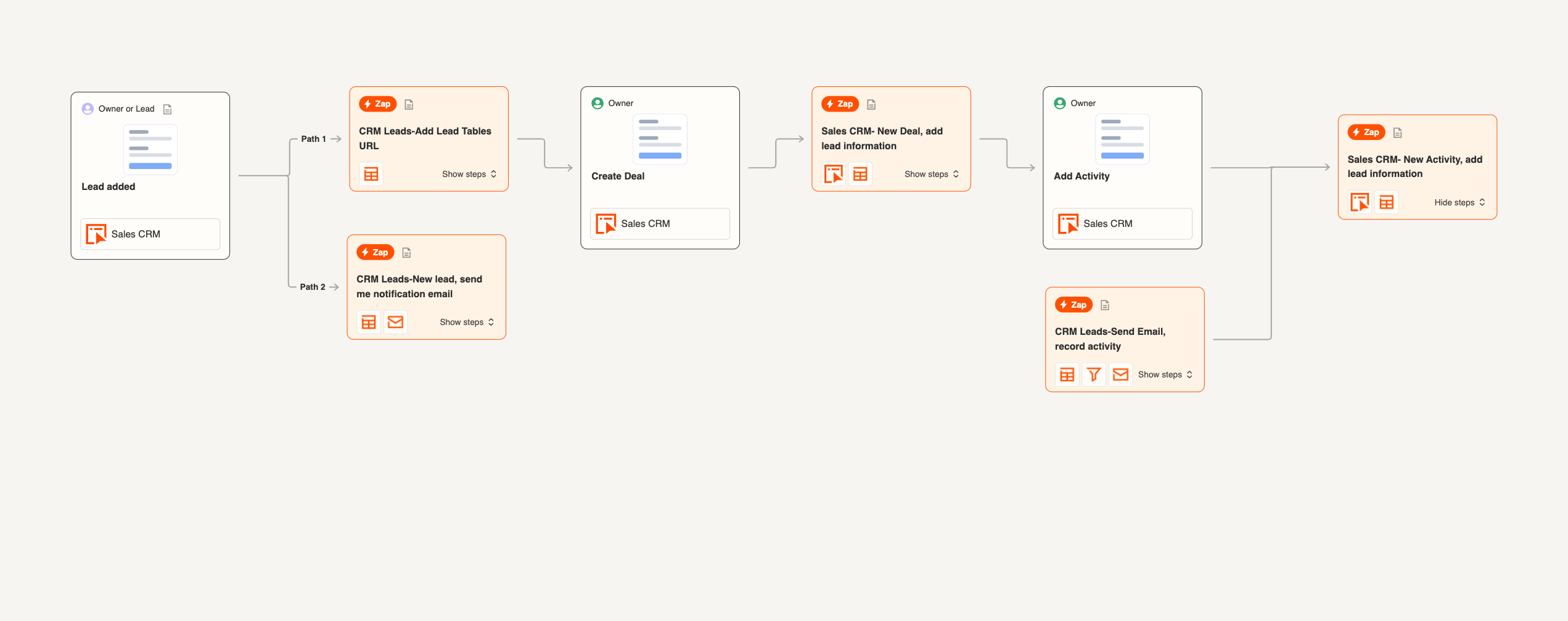
Prós do Zapier:
Deep customization with built-in AI
Integrates with 8,000+ apps
No-code automation and dashboard building
Contras do Zapier:
Not a purpose-built CRM
Yes, I'm going meta, but hear me out, because Zapier's approach to CRM is genuinely useful if you've been trying to jam your square-peg business into the round hole of standardized CRM systems.
Zapier isn't a traditional CRM like the other software on this list. It's a flexible, no-code AI orchestration platform that lets you build your own system from scratch. If your team needs something tailored to your exact process—and you want it to work with the tools you already use—Zapier gives you that freedom.
Build your CRM from the ground up with Interfaces (for creating dashboards and forms), Tables (for storing and managing your data), and Zaps (for automating workflows). You can start with Zapier's sales CRM template, which gives you the basics: a form to enter contact info, a datasheet to store that info, a lead tracker, and some basic automations.
From there, you can build out more complex workflows across your entire stack since Zapier connects with more than 8,000 apps. You can even use Zapier Canvas to map out your workflows and see how everything connects.
When you're ready, Zapier offers multiple ways to incorporate artificial intelligence into your custom CRM:
Assemble AI-powered workflows that generate content, make decisions, or process data based on specific triggers.
Embed AI chatbots that can answer questions, qualify leads, and help customers who don't read FAQs.
Use AI agents to run tasks based on natural language prompts, with built-in self-testing to ensure accuracy.
Is Zapier perfect? Nothing is, except maybe the fourth season of "Dexter" and my dog (obviously). Building a custom CRM requires more upfront thought than just subscribing to a pre-built solution. You need to really understand your sales process and customer journey before you can effectively design a system to support it.
Learn more about how to automate your entire workflow using Zapier, or get started with this template.
Organize e automatize seu pipeline de vendas para expandir seus negócios com confiança.
Zapier pricing: Free plan available; paid plans from $19.99/month (billed annually)
What is the best AI customer relationship management platform?
After poking around inside an obscene amount of AI-powered CRMs, I can't crown a single one as The Best™. Sorry. I know you wanted a clear winner, but they all do different things well depending on what problems you're trying to solve.
Nearly all of them have free trials or demos. I recommend taking two or three contenders for a spin. Plug in some of your actual data to see which one's AI actually helps your team, rather than just looking cool.
Once you've decided on an AI CRM that provides the most value for your business model, get your people on board, set it up right, and connect it to Zapier to unlock even more CRM automation possibilities. You can trigger actions across thousands of apps based on CRM events, creating intelligent workflows that extend far beyond traditional customer relationship management.
Leitura relacionada:
